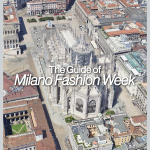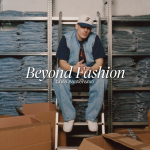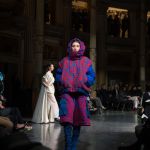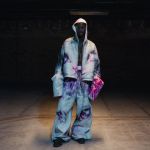
Why we end up in celebs' close friends
The case study of Billie Eilish and Lil Yachty
April 5th, 2024
For the past few hours, anyone on Instagram can find themselves in Billie Eilish's "close friends" list, see the star's IG account icon turn green, and access exclusive content. Yesterday, the singer added 111 million followers to the "close friends" list, revealing a new tattoo and a hand, seemingly immersed in water or facing a starry sky, possibly referencing her upcoming album. However, while close friends represent a tool reserved by Instagram for those who want to share exclusive content with a select group of followers, Eilish decided to include all her followers - all 111 million of them - in a list that is anything but exclusive. It seems to be a promotional strategy ahead of the next album, following in the footsteps of past operations by other artists. Some use them to draw attention to themselves and boost engagement by revitalizing interactions on their profile, some genuinely want to create a more intimate connection with their fandom, and some want to "reward" the most dedicated users with exclusive content: close friends are becoming an increasingly relevant tool in celebrity marketing and communication strategies.
In November, Lil Yachty opened access to his close friends list on Instagram, quickly reaching 11.8 million followers. Despite being a globally famous rapper, the list didn't exclusively include colleagues or friends: anyone already following the profile was automatically included, but some also clicked the "follow" button just to see the green dot appear around the artist's profile picture. Lil Yachty's choice might seem like a simple move to pass the time with some "shitposting," but it's actually indicative of celebrities' desire to bridge the gap with their fandom while staying within the confines of a smartphone screen.
Last year, Kendrick Lamar instead opened a finstagram account called "jojoruski" - a slang term combining "fake" and "Instagram" to refer to secret private profiles, often photo archives dedicated (in theory) to selected followers. Visiting the feed, we might come across random and unfiltered images, some even incomprehensible or the result of inside jokes. Like Yachty's case, it's indeed impossible to interact with Kendrick Lamar: despite not limiting comments under his posts, the massive volume of follower interactions doesn't even allow the artist to select a comment for discussion. In this "game" where VIPs expose themselves to try to connect with fans, there is still a flaw: communication remains one-way.
Following the one-way communication, Jules Koundé, a player for Barcelona, created a broadcast channel on Instagram, the new feature the platform offers to creators to share messages, images, videos, and polls one-to-many. The broadcast channel, titled "JK'S WORLD," has over 60,000 active members interacting (albeit in a very limited way) with the player. Koundé introduced himself to users with an introductory message stating he's a fan of JAY-Z, Miles Davis, and the TV series The Sopranos. He also confessed to wishing for a world where pain au chocolat is called "chocolatine," igniting a purely French culinary dispute. In the following days, he continued the conversation by sending a video of his personal gym, asking channel members to vote for a nickname: ArkhaGym, The Dark, or GymCity. The trend, seemingly ephemeral, of finding new ways to engage or reward their fandom is extremely representative of a new generation of superstars: Jules Koundé, born in 1998, and Lil Yachty, born in 1997, symbolize the younger generation's desire to seek new ways to express themselves socially, both online and offline. At first glance, these attempts may seem crude, but it's precisely the amateurish side of the content that conveys the authenticity that the most famous, perennially under the spotlight, need to grant fans a glimpse of authenticity.






















































